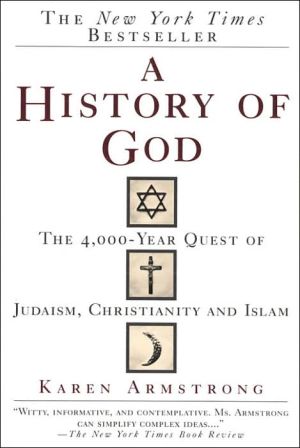God Is Not One: The Eight Rival Religions That Run the World--and Why Their Differences Matter
Search in google:
At the dawn of the twenty-first century, dizzying scientific and technological advancements, interconnected globalized economies, and even the so-called New Atheists have done nothing to change one thing: our world remains furiously religious. For good and for evil, religion is the single greatest influence in the world. We accept as self-evident that competing economic systems (capitalist or communist) or clashing political parties (Republican or Democratic) propose very different solutions to our planet's problems. So why do we pretend that the world's religious traditions are different paths to the same God? We blur the sharp distinctions between religions at our own peril, argues religion scholar Stephen Prothero, and it is time to replace naïve hopes of interreligious unity with deeper knowledge of religious differences. In Religious Literacy, Prothero demonstrated how little Americans know about their own religious traditions and why the world's religions should be taught in public schools. Now, in God Is Not One, Prothero provides readers with this much-needed content about each of the eight great religions. To claim that all religions are the same is to misunderstand that each attempts to solve a different human problem. For example: Islam: the problem is pride / the solution is submission Christianity: the problem is sin / the solution is salvation Confucianism: the problem is chaos / the solution is social order Buddhism: the problem is suffering / the solution is awakening Judaism: the problem is exile / the solution is to return to God Prothero reveals each of these traditions on its own terms to create an indispensable guide for anyone who wants to better understand the big questions human beings have asked for millennia and the disparate paths we are taking to answer them today. A bold polemical response to a generation of misguided scholarship, God Is Not One creates a new context for understanding religion in the twenty-first century and disproves the assumptions most of us make about the way the world's religions work. Publishers Weekly Expressing his astonishment, Prothero (Religious Literacy) arrives late at the party that has been celebrating for years the diversity and plurality of the world's religions. Although he is correct in asserting that an entire generation of scholars, teachers, and interested readers have claimed in the interest of religious tolerance that the world's religions were simply different paths to the same one God, such a claim functions as little more than a red herring in what is otherwise a useful introduction to the world's religions. Once past that assertion, Prothero sets up a helpful model for examining each religion on its own terms: he explores a problem that dominates the religion, the religion's solution to the problem, the technique the religion uses to move from problem to solution, and the exemplar who charts a path from problem to solution. For example, in Buddhism the problem is suffering; the solution is nirvana; the technique is the Noble Eightfold Path; and the exemplars are the arhats, bodhisattvas, and lamas. Despite his naïveté about contemporary interreligious dialogue, Prothero's survey is a useful introduction to eight of the world's great religions. Copyright © Reed Business Information, a division of Reed Elsevier Inc. All rights reserved.
A Note on Dates and DiacriticalsIntroduction 1Ch. 1 Islam: The Way of Submission 25Ch. 2 Christianity: The Way of Salvation 65Ch. 3 Confucianism: The Way of Propriety 101Ch. 4 Hinduism: The Way of Devotion 131Ch. 5 Buddhism: The Way of Awakening 169Ch. 6 Yoruba Religion: The Way of Connection 203Ch. 7 Judaism: The Way of Exile and Return 243Ch. 8 Daoism: The Way of Flourishing 279Ch. 9 A Brief Coda on Atheism: The Way of Reason 317Conclusion 331Acknowledgments 341Notes 343Index 375







